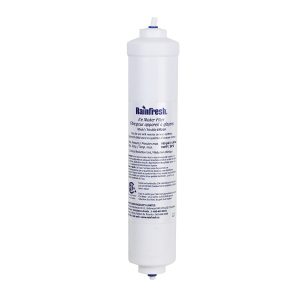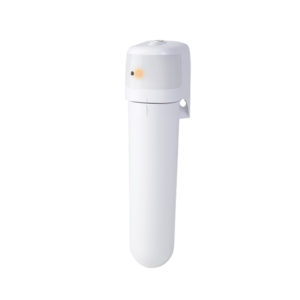- Rainfresh external fridge filters install on the water ¼” tube that supplies water to the fridge.
- They are UNIVERSAL fit which means they can be used on any fridge make and model as long as the water supply tube is ¼” OD
- External fridge filters provide clean, fresh drinking water for your family
- Reduce chlorine , taste, odour and sediment. Does not remove beneficial minerals.
- Very economical compared to in-fridge filters.
- 6 month life
- QSIM/QSIMX Certified to NSF/ANSI 42, 53, 372 and CSA B483.1
- IM200 Certified to NSF/ANSI 42 and CSA B483.1



